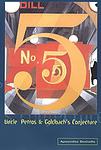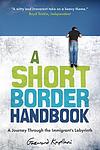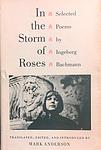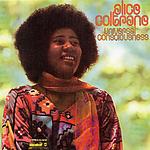The Greatest Greek, Austrian "Fiction" Books Since 1980
Click to learn how this list is calculated.
This list represents a comprehensive and trusted collection of the greatest books. Developed through a specialized algorithm, it brings together 300 'best of' book lists to form a definitive guide to the world's most acclaimed books. For those interested in how these books are chosen, additional details can be found on the rankings page.
Genres
Countries
Date Range
Reading Statistics
Click the button below to see how many of these books you've read!
Download
If you're interested in downloading this list as a CSV file for use in a spreadsheet application, you can easily do so by clicking the button below. Please note that to ensure a manageable file size and faster download, the CSV will include details for only the first 500 books.
Download-
1. The Piano Teacher by Elfriede Jelinek
"The Piano Teacher" is a dark exploration of power dynamics, sexuality, and repression. The story revolves around a piano teacher at a prestigious music school in Vienna who lives with her overbearing mother in a state of emotional and sexual repression. Her life takes a turn when she becomes sexually involved with a young, self-assured student. The relationship, marked by sadomasochistic games and emotional manipulation, spirals out of control, leading to a tragic end. The book is a profound critique of bourgeois values and the oppressive structures of society.
-
2. Extinction by Thomas Bernhard
"Extinction" is a novel that explores the dark and complex themes of family, identity, and history through the eyes of its protagonist, a professor living in Rome. When he receives news of the deaths of his parents and brother in a car accident, he is forced to confront his past and his Austrian heritage. The narrative delves into his thoughts and feelings, his criticisms of his family and society, and his philosophical musings on life and death, all while he prepares to return to his family's estate for the funeral. The novel is renowned for its dense, stream-of-consciousness style and its unflinching examination of the human condition.
-
3. Concrete by Thomas Bernhard
The book is a darkly introspective narrative that delves into the mind of a reclusive, obsessive intellectual who is struggling to complete his scholarly work on the composer Mendelssohn. As he grapples with his own ailments and the perceived mediocrity of his surroundings, the protagonist's stream-of-consciousness monologue reveals his deep-seated anxieties, self-loathing, and profound isolation. The narrative is a relentless examination of the protagonist's psyche, showcasing his critical view of society and his own personal relationships, which are fraught with tension and dysfunction. Through this, the novel explores themes of artistic creation, intellectual elitism, and the suffocating nature of expectations and familial obligations.
-
4. Woodcutters by Thomas Bernhard
Woodcutters is a darkly humorous critique of Vienna's artistic elite. The story takes place over the course of a single evening, as the narrator attends a dinner party in honor of a recently successful actor. As the evening progresses, he reflects on the pretentiousness and hypocrisy of the guests, the mediocrity of their artistic achievements, and the tragic suicide of his former lover. The novel is a scathing indictment of the vanity and self-delusion of the artistic community.
-
5. Wittgenstein's Nephew by Thomas Bernhard
"Wittgenstein's Nephew" is a semi-autobiographical novel that explores the friendship between the narrator and his friend Paul, who is the nephew of the famous philosopher Ludwig Wittgenstein. The story takes place in Vienna and is set against the backdrop of the Austrian mental health system. The novel delves into themes of sanity, insanity, and the fine line that separates the two, while also offering a critique of Austrian society. It is a meditation on the nature of illness, both physical and mental, and the impact it has on personal relationships and one's perception of the world.
-
6. The Afternoon of a Writer by Peter Handke
"The Afternoon of a Writer" is a contemplative exploration of a day in the life of a solitary writer who, after a successful morning of writing, decides to take a walk through an unnamed European city. As he strolls, he grapples with feelings of alienation and existential dread, questioning his purpose and the worth of his work. The book delves into the writer's inner struggles, his observations of the world around him, and his reflections on the act of writing itself.
-
7. The Last World by Christoph Ransmayr
"The Last World" is a novel that reimagines the exile of the Roman poet Ovid in a remote village at the edge of the Black Sea. The story is set in a mythical time and place, where the villagers are haunted by strange transformations and echoes of Ovid's metamorphoses. The novel blurs the lines between the real and the imaginary, the past and the present, and the world of the living and the dead, creating a surreal and dreamlike atmosphere.
-
8. The Daughter by Pavlos Matesis
"The Daughter" is a powerful novel set in Greece during the Second World War. The narrative follows the life of a young girl who is forced to grow up quickly due to the harsh realities of war. Her father, a communist, is executed by the Germans, and the girl is left to navigate the complexities of life, politics, and love in a world that is rapidly changing. The book offers a poignant exploration of the human capacity for resilience, survival, and hope in the face of unimaginable adversity.
-
9. Astradeni by Eugenia Fakinou
"Astradeni" is a coming-of-age novel set in post-World War II Greece. The story follows the life of a young girl named Astradeni, who is forced to grow up quickly due to the harsh realities of war and poverty. Despite the hardships she faces, Astradeni maintains a hopeful and imaginative spirit, often escaping into a world of myths and legends. The novel explores themes of resilience, the power of storytelling, and the enduring strength of the human spirit.
-
10. Uncle Petros and Goldbach's Conjecture by Apostolos Doxiadis
The novel follows the story of a young man who becomes fascinated by his reclusive and eccentric Uncle Petros. As he delves into his uncle's past, he uncovers Petros' obsession with proving Goldbach's Conjecture, a famous unsolved problem in number theory. This obsession led to Petros' alienation from society and ultimately his downfall. The book explores themes of mathematical obsession, family relationships, and the fine line between genius and madness.
-
11. Lust by Elfriede Jelinek
This book is a provocative exploration of the dynamics of power and desire within the confines of a loveless marriage. Set against the backdrop of the Austrian Alps, it delves into the life of a woman trapped in a relationship with her abusive and unfaithful husband, a powerful paper mill owner. The narrative dissects the commodification of sex, the objectification of women, and the societal structures that perpetuate these themes. Through a stark and unflinching examination of the protagonist's degradation and the pervasive corruption in her world, the novel presents a scathing critique of consumerism, the patriarchy, and the hollow nature of modern relationships.
-
12. The Late-night News by Petros Markaris
In "The Late-night News," a seasoned journalist is found murdered in his office. The investigation of the crime falls to a grizzled detective, who uncovers a web of corruption and deceit within the world of Greek media. As he delves deeper into the case, he finds that the journalist was working on a story that could have significant political implications, making the list of suspects long and dangerous. The detective must navigate through this complex world to find the killer, all while dealing with his own personal demons.
-
13. από το στόμα της παλιάς Remington by Giannis Panou
This book is a captivating collection of short stories that delve into the human condition, exploring themes of love, loss, and the complexities of life through the lens of various characters and settings. Each story is meticulously crafted, offering a glimpse into the lives of individuals as they navigate their existence, with the old Remington typewriter serving as a symbolic thread that connects the narratives. The author masterfully weaves tales that are both poignant and thought-provoking, inviting readers to reflect on their own experiences and the universal truths that bind us all.
-
14. The Snows Of Yesteryear by Gregor von Rezzori
"The Snows of Yesteryear" is a memoir that explores the author's complex and tumultuous upbringing in Eastern Europe during the early 20th century. Through a series of vivid and poignant anecdotes, the book delves into the author's personal experiences with war, displacement, and the collapse of the Austro-Hungarian Empire, offering a deeply introspective and nostalgic reflection on the fleeting nature of time and the enduring impact of one's past.
-
15. Διηγήματα by Michail Mitsakis
This collection of short stories delves into the intricacies of human emotions and societal norms through the lens of everyday life in Greece. The author masterfully crafts narratives that explore themes of love, loss, hope, and despair, weaving a rich tapestry of characters and settings that reflect the complexity of the human condition. Through poignant storytelling and a deep understanding of the cultural and historical context, these stories offer a window into the soul of Greek society, highlighting the universal and timeless nature of human experiences.
-
16. The Seventh Garment by Eugenia Fakinou
"The Seventh Garment" is a compelling narrative that weaves together the lives of several women across different generations, all connected by a mysterious heirloom garment. Set against the backdrop of Greek history and mythology, the novel explores themes of identity, tradition, and the complex bonds of family. As the story unfolds, each woman's personal journey is revealed, reflecting the broader societal changes and challenges they face. The garment serves as a symbol of their shared heritage and the secrets that are passed down through the years, binding them together in a tapestry of resilience and enduring strength.
-
17. Data From The Decade Of The Sixties by Thanassis Valtinos
This book is a compelling narrative that delves into the social and political upheavals of Greece during the 1960s, a period marked by significant turmoil and transformation. Through a meticulous compilation of documents, interviews, and personal stories, the author reconstructs the era's complex landscape, offering readers a detailed examination of the forces that shaped the country's future. The work stands as a testament to the power of collective memory and the importance of preserving historical narratives, providing a nuanced understanding of how the events of the 1960s influenced Greek society and its subsequent generations.
-
18. Ο Μπιντές by Marios Hakkas
This novel delves into the life of a man known by the nickname "Ο Μπιντές," exploring his journey through various stages of his life, from his early years in a small village to his experiences in the bustling city. The narrative weaves through themes of love, loss, and the quest for identity, set against the backdrop of significant historical and social changes in Greece. Through vivid characterizations and a keen eye for detail, the author crafts a poignant tale that not only tells the story of one man's life but also reflects on the broader human condition, highlighting the resilience of the human spirit in the face of adversity.
-
19. Και Με Το Φως Του Λυκου Επανερχονται by Zyranna Zateli
This novel weaves a rich tapestry of family saga and Greek mythology, set against the backdrop of the 20th century. It tells the story of two families bound by a deep and complex connection, exploring themes of love, loss, and the cyclical nature of life through the lens of magical realism. The narrative is imbued with the mystical allure of folklore, as characters navigate their fates intertwined with the whims of gods and the transformative power of storytelling. Through its lyrical prose, the book delves into the essence of human experience, the bonds that tie us to our past, and the enduring light of hope that guides us through darkness.
-
20. The Loser by Thomas Bernhard
"The Loser" is a philosophical novel that revolves around the complex relationship between three friends who are all piano virtuosos. The narrative is driven by the protagonist's obsession with his friend's suicide, which he believes was triggered by the realization that they could never surpass the genius of their third friend. The book delves into the protagonist's psyche as he grapples with themes of talent, ambition, failure, and the destructive power of comparison.
-
21. Orthokostá by Thanassis Valtinos
This novel presents a vivid tapestry of life in a rural Greek village, focusing on the intricate web of human relationships, traditions, and the harsh realities of rural existence. Through a series of interconnected stories and a diverse cast of characters, the narrative delves into themes of love, loss, struggle, and the enduring strength of the human spirit against the backdrop of Greece's tumultuous history. The author masterfully employs a minimalist style and dialogue-driven narrative to explore the complexities of social and personal identity, making it a poignant reflection on the universal aspects of human life.
-
22. Ντιάλιθ' ιμ Χριστάκη by Sotiris Dimitriou
This book is a compelling narrative that delves into the life of its protagonist, Ντιάλιθ, set against the backdrop of the vibrant yet tumultuous landscape of Greece. Through a series of evocative episodes, the story explores themes of identity, belonging, and the complexities of human relationships. The protagonist's journey is marked by a quest for personal meaning and connection within the confines of a society that is both rich in tradition and grappling with modern challenges. The author masterfully weaves together the personal and the political, creating a poignant exploration of the human condition and the enduring search for home.
-
23. A Short Border Handbook by Gazmend Kapllani
"A Short Border Handbook" is a poignant and thought-provoking memoir that follows the journey of a young Albanian man who leaves his homeland to seek a better life in Greece. Through a series of vivid and often humorous anecdotes, the author explores themes of identity, belonging, and the complexities of borders, both physical and metaphorical. With a mix of personal experiences and historical context, this book offers a unique perspective on the challenges and triumphs of immigration, ultimately revealing the universal human desire for freedom and acceptance.
-
24. In The Storm Of Roses by Ingeborg Bachmann
"In the Storm of Roses" is a collection of profound and evocative poems that delve into the complexities of human existence, exploring themes of love, loss, and the enduring human spirit amidst the backdrop of post-war Europe. The poet's masterful use of language and imagery weaves a tapestry of emotion and thought, inviting readers to contemplate the nature of reality, the pain of memory, and the possibility of redemption. Through a blend of personal introspection and universal resonance, the work captures the tumultuous journey of the soul seeking understanding and beauty in a fragmented and often harsh world.
-
25. Universal Consciousness by alexis karpouzos
This book delves into the profound concept that all forms of life are interconnected through a universal consciousness, transcending the boundaries of individual existence. The author explores the idea that this collective consciousness is the foundation of all reality, suggesting that our understanding of the universe and our place within it can be vastly expanded by embracing this perspective. Through a blend of philosophy, science, and spirituality, the text invites readers to consider the implications of a unified consciousness for personal growth, empathy, and the interconnectedness of all beings. It challenges conventional notions of separateness, urging a reevaluation of how we perceive ourselves and the world around us.
Reading Statistics
Click the button below to see how many of these books you've read!
Download
If you're interested in downloading this list as a CSV file for use in a spreadsheet application, you can easily do so by clicking the button below. Please note that to ensure a manageable file size and faster download, the CSV will include details for only the first 500 books.
Download


















